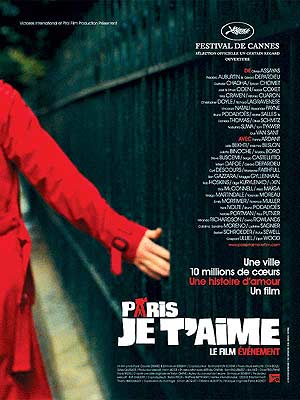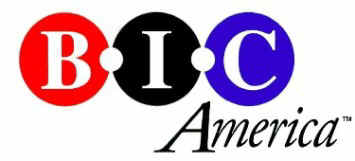 "SiCKO" (dir. Michael Moore, USA, 2007, 113 mins.) As IF you needed to read anymore about Michael Moore's latest cinematic op-ed about the state of the health and insurance industries in the U.S., I'm gladly throwing in MY two cents! Admittedly, it has taken me a few days to pull my thoughts together, as it is a complicated issue (his technique, politics and the subject matter) to sort through.
"SiCKO" (dir. Michael Moore, USA, 2007, 113 mins.) As IF you needed to read anymore about Michael Moore's latest cinematic op-ed about the state of the health and insurance industries in the U.S., I'm gladly throwing in MY two cents! Admittedly, it has taken me a few days to pull my thoughts together, as it is a complicated issue (his technique, politics and the subject matter) to sort through.
This is perhaps his most personally restrained piece he has yet produced. However, what it might lack in the vitriol of "Fahrenheit 9/11", or the cynicism of "Bowling for Columbine", it makes up for in the raw presentation of the pain and frustration of some of his subjects. It is a difficult film to discuss without giving away spoilers. It is not a spoiler to state that within the first 3 minutes of the film, Moore (who narrates throughout) gives an example of two uninsured men who suffered accidents. However, "this is not about them or the other 50 million uninsured Americans..." This is the story of INSURED Americans and how the system has failed them - and on BOTH sides of the industry. Along with patients and survivors who are actual victims of HMO's, he interviews claims adjusters, investigators and physicians who work for these companies. Noticeably, there are no executives. Some of the examples are annoying, infuriating and heartbreaking.  Just as you think that this is going to be a spiral of doom, he proceeds to move on to Canada, Great Britain and France. This second third of the film is where the controversy begins. There is no argument with the first third that this is a tragic situation. In the second third, the interviewees are presented in insured paradise. Michael Moore's insistence that SOMEONE must pay cash somewhere within these systems is met with derision, laughter and some mockery. Moore's detractors will point out that he does not specifically note the tax burden that these societies carry. However, he does interview people regarding the use of tax money for socialized medicine, all of whom reply in effect (and one specifically), "if you can afford to kill, you can afford to heal." Nor does he interview or present any unfortunate cases that are comparably compelling. Apparently, everyone is happily and freely popping in and out of idyllic clinics and hospitals all over Europe and Canada. Though we 'know' this can't be possible, Moore does not allow a contradicting voice to be heard from these areas.
Just as you think that this is going to be a spiral of doom, he proceeds to move on to Canada, Great Britain and France. This second third of the film is where the controversy begins. There is no argument with the first third that this is a tragic situation. In the second third, the interviewees are presented in insured paradise. Michael Moore's insistence that SOMEONE must pay cash somewhere within these systems is met with derision, laughter and some mockery. Moore's detractors will point out that he does not specifically note the tax burden that these societies carry. However, he does interview people regarding the use of tax money for socialized medicine, all of whom reply in effect (and one specifically), "if you can afford to kill, you can afford to heal." Nor does he interview or present any unfortunate cases that are comparably compelling. Apparently, everyone is happily and freely popping in and out of idyllic clinics and hospitals all over Europe and Canada. Though we 'know' this can't be possible, Moore does not allow a contradicting voice to be heard from these areas.
The final third is the publicized trip to Guantanamo Bay with some injured/disabled 9/11 volunteers, who are unable to afford health care in NYC, but find relief in Havana, Cuba. If there is any 'stunt' within Moore's film, it occurs here, where there is no question he would not be allowed access to the army hospital, and how he manages to take his boatload of patients into Havana is not disclosed, but it must have been carefully thought out and planned. However, once inside, the reactions from his passengers are quite touching.
Now, with the presented evidence, there is no question that the U.S. health care industry has absolutely no excuse for cracks, loopholes and its basic philosophy ("...the industry doesn't deny care, but it denies the payment of it..."), when shown in comparison to several other Western systems. Where Moore leaves himself open to fierce rebuttal, if not downright dismissal, is his avoidance or ignoring of the cracks in the other scenarios. Certainly, we have all heard stories of the MONTHS of waiting that some Canadian patients have experienced in obtaining procedures. Moore could have produced a much more dry and grueling experience had he laid out the budget of the various systems and proceeded with side-by-side or case-by-case scenarios. As far as that kind of detail, we are told that the U.S. spends the highest amount of money on health care, but is rated at #37 in the dispensation of that care. This is the only comparative statistic he gives us. Other than that fact, the film relies on emotional tug. That is not necessarily a BAD thing. However, to rest his case on emotional appeal denies the film the necessary credibility to actually achieve its honorable purpose. He relies on non-discriminating political appeal. Ultimately, he rests the 'blame' on a silent democracy for having allowed two generations of Congress and the White House (BOTH Democrats and Republicans) to be swayed by a powerful medical and pharmaceutical lobby. A powerful film? Yes, I got choked up more than once. A great documentary? No, its judicious use of fact belies that. A great op/ed? Yes, compared to the public screeds from, oh, let's say Anne Coulter, this is brilliant.
Thursday, July 05, 2007
Sympathetic "SiCKO"
Ah, Paree...
It is sort of ironic that on the Fourth of July, I spent the day watching films about France. Sort of. "Ratatouille" (dir. Brad Bird, US, 2007, 110 mins.), Pixar's latest souffle about a brilliant little rat who takes over a Paris restaurant, is critic proof, thanks to a WHOPPER of a final monologue delivered by the incomparable Peter O'Toole! There is considerable voice talent: Janeane Garofalo is nearly unrecognizable in her voicing of the love interest, as is Ian Holme as the rat's evil nemesis. Curiously, our heroes voiced by Patton Oswalt (the rat, Remy) and Lou Romano (the chef Linguini, who the rat 'uses' to accomplish his culinary miracles) are the least memorable.
"Ratatouille" (dir. Brad Bird, US, 2007, 110 mins.), Pixar's latest souffle about a brilliant little rat who takes over a Paris restaurant, is critic proof, thanks to a WHOPPER of a final monologue delivered by the incomparable Peter O'Toole! There is considerable voice talent: Janeane Garofalo is nearly unrecognizable in her voicing of the love interest, as is Ian Holme as the rat's evil nemesis. Curiously, our heroes voiced by Patton Oswalt (the rat, Remy) and Lou Romano (the chef Linguini, who the rat 'uses' to accomplish his culinary miracles) are the least memorable.
The film is gorgeous to look at! Thematically, I thought it stumbled a bit. However, whatever weakness the script might have in its moral, it is overwhelmed by the amazing technique of presenting what eating can be all about. Its climax is thrillingly produced and it is simply set at a dinner table. That moment (with the slight exception of a flashback out of "Willard"), and I don't want to go on TOO much about it, is worth the 100 minutes or so of fluff to get to. Just give it a whirl!  After that piece of fluff, I entered 'art'. "Paris, je t'aime" (dirs. 18 of them, France, 2006, 120 mins.) This is a 'collective film' directed by no less than 18 directors in 16 scenes, including some of my favorites! I had to see Tom Tykwer's inclusion, which was released at the Berlin Film Festival more than two years ago as "True" featuring Natalie Portman.
After that piece of fluff, I entered 'art'. "Paris, je t'aime" (dirs. 18 of them, France, 2006, 120 mins.) This is a 'collective film' directed by no less than 18 directors in 16 scenes, including some of my favorites! I had to see Tom Tykwer's inclusion, which was released at the Berlin Film Festival more than two years ago as "True" featuring Natalie Portman. Also, the Coen brothers are here (featuring Steve Buscemi as a discombobulated American tourist), along with Christopher Doyle (directing Barbet Schroeder!), Alfonso Cuarón (directing Nick Nolte), Wes Craven (?!), Alexander Payne, and the list goes on and on. The majority of the scenes are stunning, both visually as well as their pithy and effective screenplays. I can not think of a single piece that I would have cut out.
Also, the Coen brothers are here (featuring Steve Buscemi as a discombobulated American tourist), along with Christopher Doyle (directing Barbet Schroeder!), Alfonso Cuarón (directing Nick Nolte), Wes Craven (?!), Alexander Payne, and the list goes on and on. The majority of the scenes are stunning, both visually as well as their pithy and effective screenplays. I can not think of a single piece that I would have cut out.  The performances by the HUGE cast are at least good and, at times, brilliant. Ben Gazzara and Gena Rowlands (directed by Gérard Depardieu and written by Gena Rowlands) are incredible, as is Juliette Binoche (directed by Nobuhiro Suwa). Nearly each segment features an O'Henry twist to it that I find undeniably appealing! The scenes are all tied together by geographic references, Emmanuel Benbihy's cinematic transition pieces and the musical score by Pierre Adenot, Marie Sabbah and Tom Tykwer. It is thrilling, gorgeous and a lovely way to spend an afternoon! It is also available on R2-DVD in France, so I suspect it will become available here in some time!
The performances by the HUGE cast are at least good and, at times, brilliant. Ben Gazzara and Gena Rowlands (directed by Gérard Depardieu and written by Gena Rowlands) are incredible, as is Juliette Binoche (directed by Nobuhiro Suwa). Nearly each segment features an O'Henry twist to it that I find undeniably appealing! The scenes are all tied together by geographic references, Emmanuel Benbihy's cinematic transition pieces and the musical score by Pierre Adenot, Marie Sabbah and Tom Tykwer. It is thrilling, gorgeous and a lovely way to spend an afternoon! It is also available on R2-DVD in France, so I suspect it will become available here in some time!
TEN CANOES in Atlanta and...???
 "Ten Canoes" (dirs. Rolf de Heer, Peter Djigirr, Australia, 2006, 90 mins.), which I saw and LOVED at this year's SFIndieFest opens in Atlanta (at the Landmark Midtown) tomorrow! Hopefully, EVERYWHERE else, too!!
"Ten Canoes" (dirs. Rolf de Heer, Peter Djigirr, Australia, 2006, 90 mins.), which I saw and LOVED at this year's SFIndieFest opens in Atlanta (at the Landmark Midtown) tomorrow! Hopefully, EVERYWHERE else, too!!
I think I need to see it again!!



















 Pseudomyxoma Peritonei (Huh???)
Pseudomyxoma Peritonei (Huh???) Fluidtoons! By Brett W. Thompson!
Fluidtoons! By Brett W. Thompson!
 THE EVENING CLASS (by Michael Guillen)
THE EVENING CLASS (by Michael Guillen) Television Without Pity!
Television Without Pity! John Rutherford's Blog for COLT Studio Group
John Rutherford's Blog for COLT Studio Group


